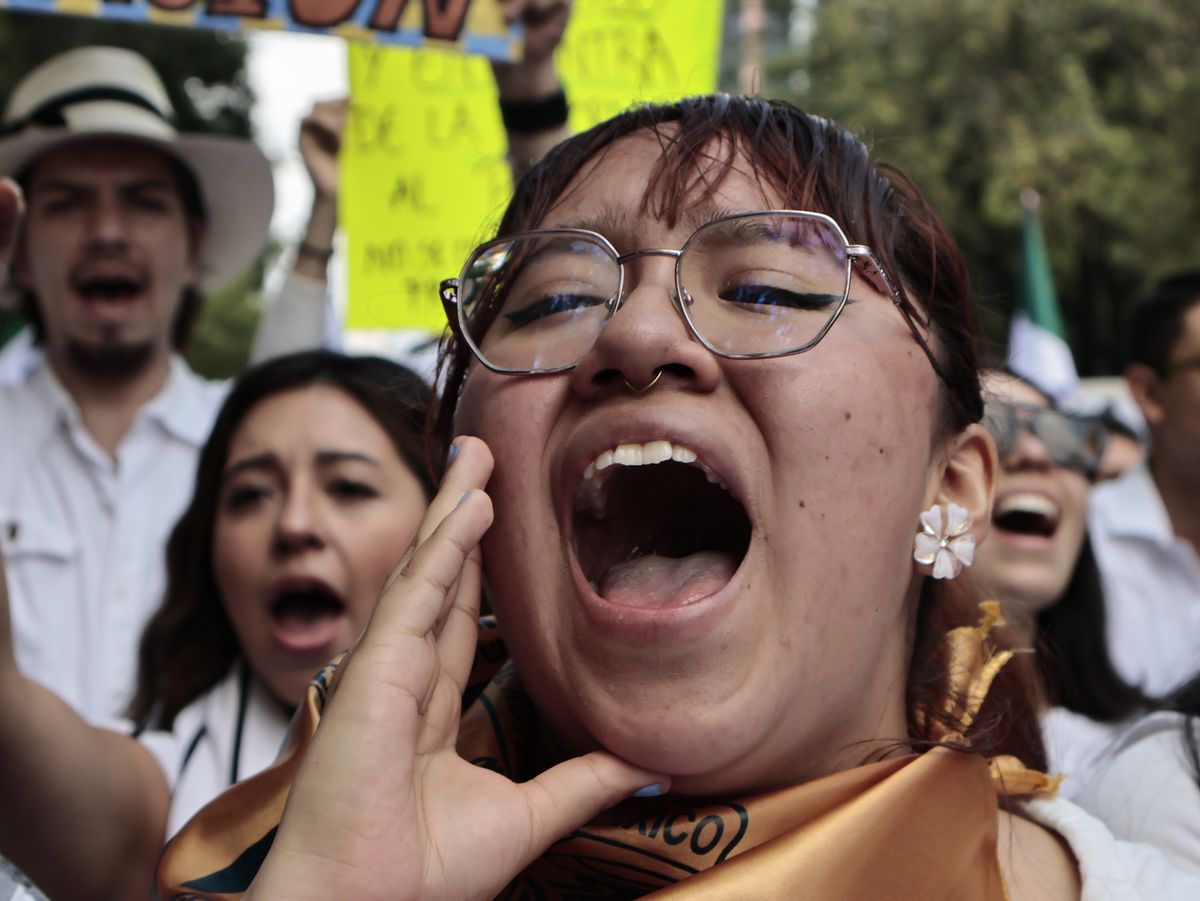
The Trump/Vance ticket seems to have a problem attracting the support of women voters. In fact, recent polling shows women in the battleground states report 17 points less support for the Trump/Vance ticket than men.
When the data are split generationally, this gender divide becomes even more stark. Among those aged 18–29, there is a 51-point gender gap. Women in this age bracket support Trump at just 13 points, while women support Harris by 38 points.
There are likely numerous reasons for this growing gender gap, including the historic nature of Harris's campaign and Trump's numerous well-documented conflicts with women. However, one source of these polling deficits may be tied to Trump's vice presidential nominee's attack on single women and women without children.
As J.D. Vance emerged as the vice presidential pick for the Trump ticket, a 2021 Fox News Interview resurfaced in which he said the country was being run by a "bunch of childless cat ladies who are miserable at their own lives and the choices that they've made and so they want to make the rest of the country miserable, too."
In another interview around the same time, he questioned whether the president of the American Federation of Teachers should be working on school policy, because she did not have children.
The challenge for the Trump/Vance ticket is that as our research shows, single women are much more likely to see their futures as connected to other women. As a result, they are more likely to support the Democrats. Shaming them for their single status only reinforces their connection to other women, and a vote for Harris.
We are connected: the role of gender-linked fate
Our research team has been investigating the concept of "gender-linked fate," or agreement with the idea that what happens to women in general will affect women's own lives. This work follows previous research in the US that found Black voters tend to report higher levels of racial-linked fate, or seeing their futures and fates as intrinsically tied to those of other Black people. This link helps explain why Black voters in the US consistently vote Democratic, despite coming from diverse educational and income backgrounds.
We used the 2012 American Election Survey to see whether women's levels of gender-linked fate predicted their political affiliation. And, we found that one group was a standout in their exceptionally high rates of gender-linked fate: single white and Latina women. More than three-quarters of white and Latina single women reported that their futures were tied to what happened to women in general. One in three reported that the influence was significant.
So single women felt particularly connected to other women. Black women's universally higher levels of gender-linked fate meant that their marital status had little impact on their levels of connection to other women.
We then looked to see if levels of gender-linked fate helped explain political ideologies, or levels of conservatism and progressivism, and political party support. We found single women's higher levels of gender-linked fate helped explain why they held more progressive attitudes and were less likely to identify as Republicans than their married counterparts.
Women see the hardships other women ensure
So J.D. Vance is right—single women are less likely to be conservative and vote for his ticket. But, it has nothing to do with them being miserable. Rather, they have a unique view of the experiences of women in a society they feel is stacked against them. We aren't the only ones to show this. Previous research shows single women are more likely to experience poverty, and despite being more likely to work than married women, earn less.
As a result, single women are more likely to support policies that advance opportunities for all women, especially as they have to rely more heavily on their own incomes. They are also more likely to see gender discrimination at work and gender pay gaps that aren't tied to individual successes or failures.
They are more likely to be pro-choice, in part because they see their futures and fates as more connected to other women. And women who see themselves as connected to other women are more likely to vote for women.
Group-based attacks are not a winning strategy
Attacking women for their life choices is likely to increase levels of group consciousness among women. When women feel marginalized, they tend to display higher levels of gender-linked fate. Vance trivializing the value of the work of women without children is likely to highlight the marginalization they feel in society. This greater recognition of the shared bonds that are forged from shaming likely heightens their sense of connection to others who share their gender and circumstances.
This sense of gender-linked fate, which is likely furthered by these comments, will amplify support for the Democratic ticket. Not only should higher levels of gender link fate lead women to feel a greater disconnect between their preferences and the Republican Party's positions around reproductive rights and gender equity, but it may also increase support for the Harris campaign's attempt to break the glass ceiling.
Provided by The Conversation
This article is republished from The Conversation under a Creative Commons license. Read the original article.![]()


















